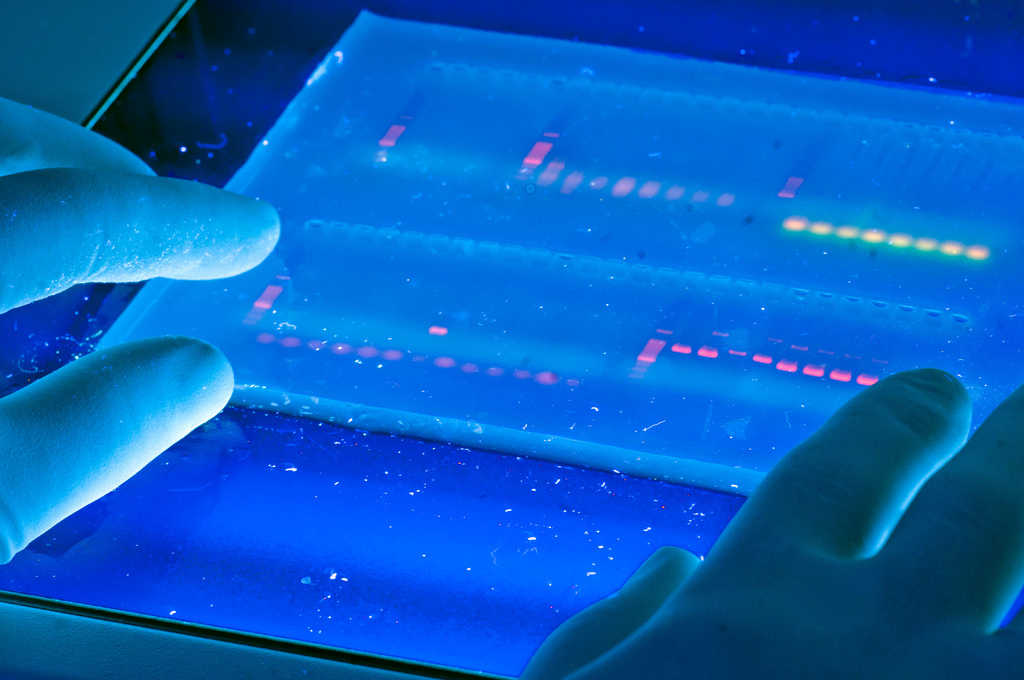One of the biggest problems that the engineers and programmers are facing right now is the prospect of having way too much information and not enough space to store it. Even with tech companies coming up with ways to make storage devices smaller and more compact while increasing the amount of space available, technology is about to hit a wall. Thanks to scientists who successfully stored files and a short clip in DNA, however, this wall might just get pushed back.
The study was done by two researchers from the Columbia University and the New York Genome Center, Phys.org reports. They published their findings in the journal Science, which talked about how the pair managed to store data into the nucleotides of DNA.
This has substantial implications for multiple fields and disciplines due to how it expands the number of choices that scientists have when it comes to storing information and how DNA can survive for hundreds of thousands of years. As far as preserving data goes, it doesn’t get any better than that at the moment.
Yaniv Erlich is one of the authors of the study and according to him, DNA is the perfect storage option because it won’t degrade as fast as discs or wires. It’s also safe from becoming obsolete, largely because humans will likely never be able to exist without DNA.
The Scientist actually spoke to Erlich recently to ask him a few questions on their discovery. When asked why they chose to work on DNA for potential information storage, he answered with information that practically all computer engineers know.
“First, we’re starting to reach the physical limits of hard drives,” Erlich said. “DNA is much more compact than magnetic media—about 1 million times more compact. Second, it can last for a much longer time. Think about your CDs from the 90s, they’re probably scratched by now. [Today] we can read DNA from a skeleton [that is] 4,000 years old. Third, one of the nice features about DNA is that it is not subject to digital obsoleteness.”



 Eli Lilly’s Inluriyo Gains FDA Approval for Advanced Breast Cancer Treatment
Eli Lilly’s Inluriyo Gains FDA Approval for Advanced Breast Cancer Treatment  Is space worth the cost? Accounting experts say its value can’t be found in spreadsheets
Is space worth the cost? Accounting experts say its value can’t be found in spreadsheets  Astronomers have discovered another puzzling interstellar object − this third one is big, bright and fast
Astronomers have discovered another puzzling interstellar object − this third one is big, bright and fast  SpaceX Prioritizes Moon Mission Before Mars as Starship Development Accelerates
SpaceX Prioritizes Moon Mission Before Mars as Starship Development Accelerates  NASA and Roscosmos Chiefs Meet in Florida to Discuss Moon and ISS Cooperation
NASA and Roscosmos Chiefs Meet in Florida to Discuss Moon and ISS Cooperation  Neuralink Plans High-Volume Brain Implant Production and Fully Automated Surgery by 2026
Neuralink Plans High-Volume Brain Implant Production and Fully Automated Surgery by 2026  Cogent Biosciences Soars 120% on Breakthrough Phase 3 Results for Bezuclastinib in GIST Treatment
Cogent Biosciences Soars 120% on Breakthrough Phase 3 Results for Bezuclastinib in GIST Treatment  FDA Pilot Program Eases Rules for Nicotine Pouch Makers
FDA Pilot Program Eases Rules for Nicotine Pouch Makers  SpaceX Starship Test Flight Reaches New Heights but Ends in Setback
SpaceX Starship Test Flight Reaches New Heights but Ends in Setback  NASA Astronauts Wilmore and Williams Recover After Boeing Starliner Delay
NASA Astronauts Wilmore and Williams Recover After Boeing Starliner Delay  Trump Administration to Launch Autism Initiatives Targeting Acetaminophen Use and New Treatment Options
Trump Administration to Launch Autism Initiatives Targeting Acetaminophen Use and New Treatment Options 































